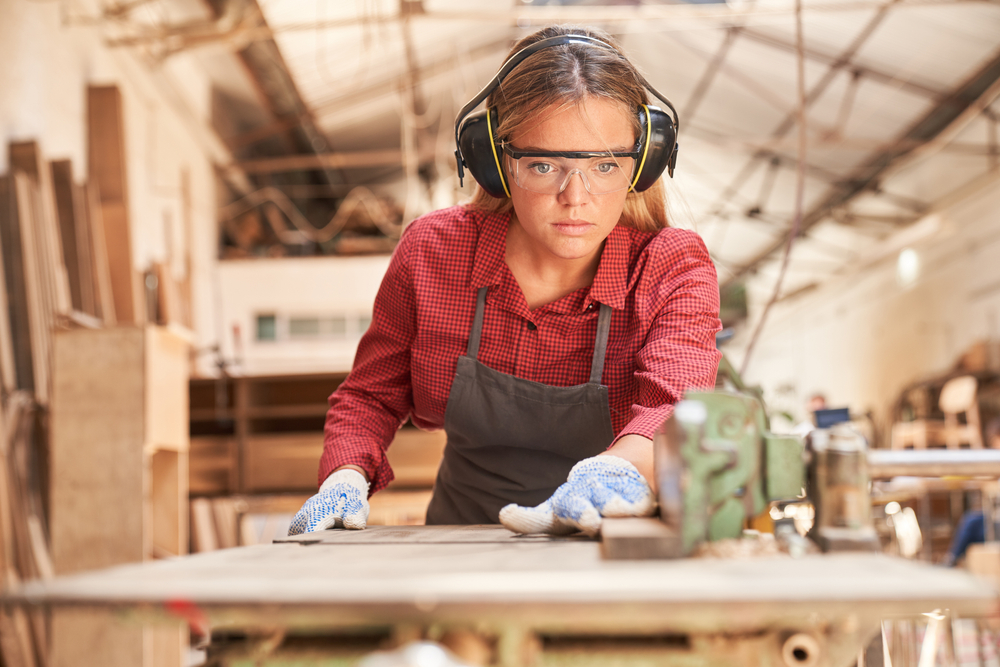
Whether you’re attending concerts, working, or doing some yard work, hearing protection is essential in keeping your ears safe from damaging noise levels. However, several factors can hinder the effectiveness of your hearing protection, leaving you exposed to possible risks. In order to understand and effectively maximize the advantages of your ear protection, it’s essential to understand these issues.
Common reasons why hearing protection fails
Unexpected problems will occur even when you follow best practices. You wear your earmuffs diligently at work, use earplugs at concerts, and stay away from noisy situations whenever possible. However, the effectiveness of your hearing protection can be reduced by certain variables. Fortunately, by recognizing these common pitfalls, you can make educated adjustments to ensure your hearing is always well-protected.
1. Choosing the wrong hearing protection for the circumstance
The effectiveness of hearing protection can be decreased by choosing the wrong type for the given situation.
There are generally two main categories of hearing protection:
- Earplugs: Small, flexible inserts that fit snugly inside the ear canal.
- Earmuffs: Larger devices that go over the whole ear, similar to headphones.
Each type has its best use case:
- Earplugs are best suited for settings with constant noise levels, including factory floors or airplane cabins.
- Earmuffs are better for settings with intermittent noise, such as a construction site where machinery starts and stops constantly.
Earmuffs are easier to deal with when there is a need to regularly put on and remove your hearing protection. However, earplugs, particularly disposable ones, can be easily misplaced, leaving you unprotected when noise levels rise again. Picking the right hearing protection for your requirements is the first step toward safeguarding your hearing effectively.
2. Personal anatomy impacts fit and effectiveness
Every individual’s ears are unique, which means not all hearing protection devices will fit everyone equally well. An average sized ear is what standard earplugs and earmuffs are designed for, but a more individualized solution may be required for your ear’s anatomy.
- Smaller ear canals: If you have narrow ear canals, standard-sized earplugs may not create an effective seal, decreasing their noise-blocking capabilities.
- Larger ear structures: Earmuffs could be uncomfortable if your ears are bigger than average creating gaps in the seal.
Poorly fitting hearing protection can lead to frustration and a desire to discontinue their use completely, putting your hearing at risk. If you spend substantial time in loud environments, consider investing in custom-molded earplugs or professionally fitted earmuffs. These tailored solutions provide maximum comfort and effectiveness, ensuring you stay protected in any scenario.
3. Disregarding regular upkeep and replacement
Like any piece of equipment, hearing protection devices require maintenance to remain effective. Wear and tear, improper cleaning, and disregarding replacement schedules can all undermine their ability to protect your ears.
The following are a number of tips on how to care for hearing protection:
- Inspect for Damage: Frequently inspect the elastic band on earmuffs. Their ability to efficiently block noise can be compromised if the elastic band is loose or stretched.
- Replace Cushions: The pliability of earmuff cushions can diminish over time. Replace them when necessary to maintain a proper seal.
- Clean Properly: Debris and earwax can accumulate on your hearing protection over time. In order to safely and effectively clean your earplugs or earmuffs, consult the manufacturer-recommended cleaning guidelines.
Your hearing protection will be less effective and possibly unusable if you ignore these basic maintenance tasks. In order to ensure consistent and effective performance, and to extend their lifespan, it’s crucial to keep these routine maintenance schedules.
The role of a hearing specialist
If you’re uncertain whether your hearing protection is getting the job done, schedule a consultation appointment with us. We can examine your present devices, recommend alternatives, and even provide custom solutions tailored to your particular needs.
Keeping your hearing safe is a commitment that lasts a lifetime and it’s important that you do it with the best tools. By addressing these common challenges, you can confidently safeguard your ears from damaging noise and preserve your hearing for years to come.